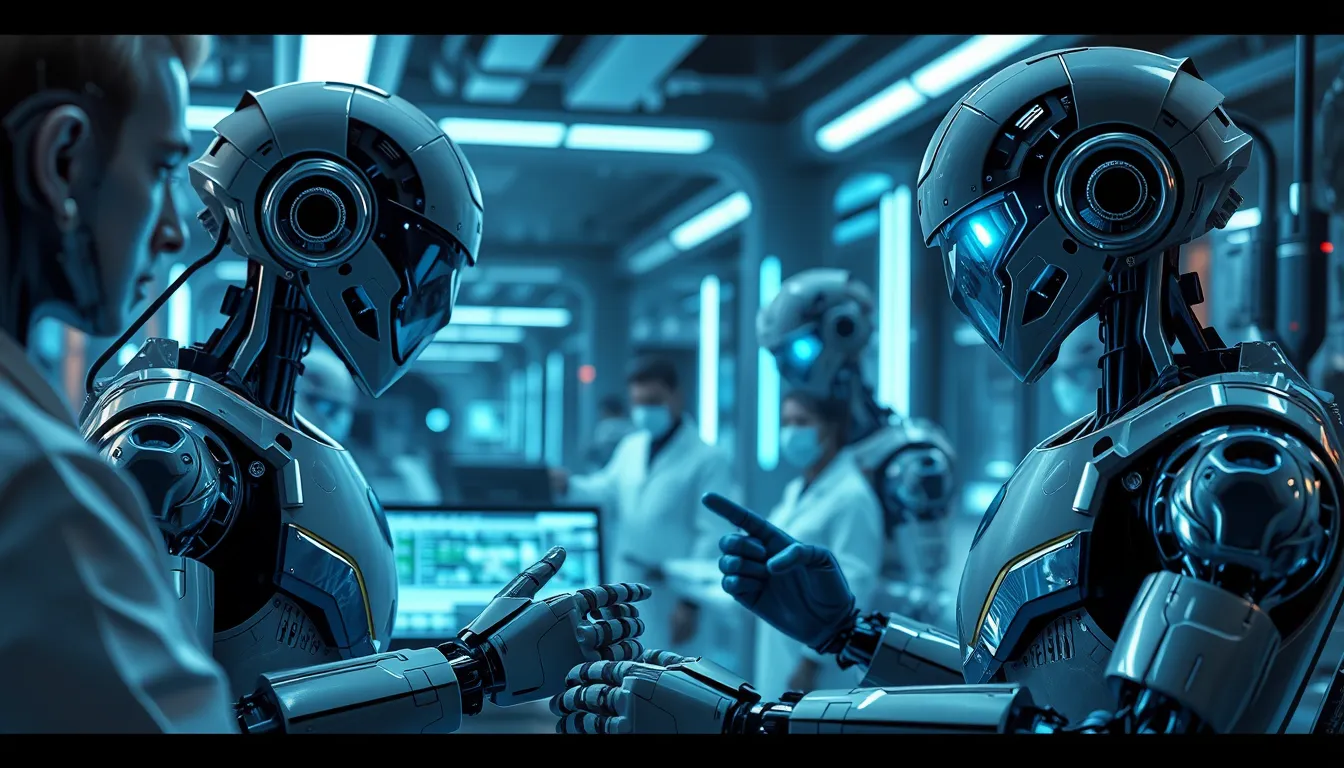Now Reading: Powerful AI in Healthcare Diagnostics: Boosting Patient Care
-
01
Powerful AI in Healthcare Diagnostics: Boosting Patient Care
Powerful AI in Healthcare Diagnostics: Boosting Patient Care

Powerful AI in Healthcare Diagnostics: Boosting Patient Care
Introduction
In today’s rapidly evolving medical landscape, the integration of technology and healthcare has led to transformative changes. One of the most impactful trends is the adoption of AI in healthcare diagnostics. By harnessing the power of artificial intelligence, diagnostic accuracy is improving and patient outcomes are being revolutionized. This article explores the advancements, benefits, and future challenges of AI in healthcare diagnostics.
The Evolution of AI in Healthcare
Over the past decade, healthcare has witnessed a major shift driven by innovative AI applications. From enhancing medical imaging to revolutionizing disease prediction and treatment planning, AI tools are reshaping how clinicians diagnose and manage patient health. A key focus is on streamlining procedures which leads to faster diagnosis and cost-effective treatment plans. The integration of AI in healthcare diagnostics has also raised discussions on best practices and ethical considerations.
Key Benefits of AI in Healthcare Diagnostics
- Enhanced Diagnostic Accuracy: AI systems excel in analyzing complex images and data, minimizing human errors.
- Faster Turnaround Times: Automated systems speed up diagnostic processes, enabling timely interventions.
- Cost Efficiency: Reducing repetitive manual tasks, AI helps lower operational costs.
- Improved Disease Prediction: With sophisticated algorithms, AI in healthcare diagnostics can predict diseases before they progress.
- Standardized Interpretations: Greater consistency in results ensures reliable care across different healthcare settings.
How AI Improves Diagnostic Accuracy
One of the standout qualities of AI in healthcare diagnostics is its ability to continuously learn and improve. For example, advanced machine learning models analyze thousands of medical images to recognize subtle patterns that often escape human observation.
Bullet Points of AI Impact:
- Data-Driven Insights: AI systems leverage vast datasets to provide evidence-based insights.
- Improved Medical Imaging: AI analyzes X-rays, MRIs, and CT scans to identify anomalies with precision.
- Early Detection: AI enables early disease detection, helping to prevent progression to severe stages.
Through these mechanisms, AI in healthcare diagnostics not only improves the accuracy of results but also accelerates the diagnostic process, thereby enhancing overall patient care.
AI Medical Imaging and Disease Prediction
The emergence of AI medical imaging is another milestone in modern diagnostics. By integrating deep learning algorithms, AI tools can interpret complex medical images with unprecedented accuracy. This evolution directly translates to improved patient outcomes. In addition, AI disease prediction models are now capable of analyzing patient history, genetic markers, and other clinical factors to forecast potential health issues.
For instance, with tools like those offered by research institutions and technology giants (such as the innovative projects at OpenAI), healthcare professionals can receive actionable insights that support diagnostic decisions. This integration ensures personalized treatment plans, tailored to each patient’s unique needs.
Overcoming Challenges in AI Implementation
- Data Privacy and Security: Ensuring patient data is secure while using AI technology is paramount.
- Integration with Existing Systems: Seamless incorporation of AI tools with legacy health systems requires significant investment in infrastructure and training.
- Regulatory Hurdles: Sustained compliance with health regulations while innovating is a continuous challenge.
- Ethical Considerations: Addressing concerns regarding bias in AI algorithms and ensuring fairness in diagnostic processes are critical.
Addressing these challenges requires collaborative efforts among healthcare professionals, technologists, and regulatory bodies. The goal is to create a healthcare system where AI in healthcare diagnostics not only enhances patient care but also adheres to the highest standards of safety and ethics.
Future Prospects and Conclusion
Looking forward, the future of AI in healthcare diagnostics is promising. As the technology matures, we anticipate further breakthroughs in areas like personalized medicine and predictive analytics. The continuous improvement in machine learning and algorithm design will likely lead to even greater diagnostic precision and faster results.
In conclusion, AI in healthcare diagnostics is not just a technological advancement; it is a fundamental shift poised to reshape patient care worldwide. The benefits are clear: improved diagnostic accuracy, enhanced efficiency, and revolutionary changes in medical imaging and disease prediction. Healthcare providers who embrace this technology are likely to offer better, more timely care while overcoming traditional obstacles through innovation. As we move towards a future where AI and healthcare operate hand in hand, the potential for saving lives and transforming patient outcomes is truly limitless.
By staying informed and adapting to these technological trends, medical professionals can ensure that patient care remains at the forefront of innovation. Embracing the challenges and opportunities of AI in healthcare diagnostics today paves the way for a healthier tomorrow.

























